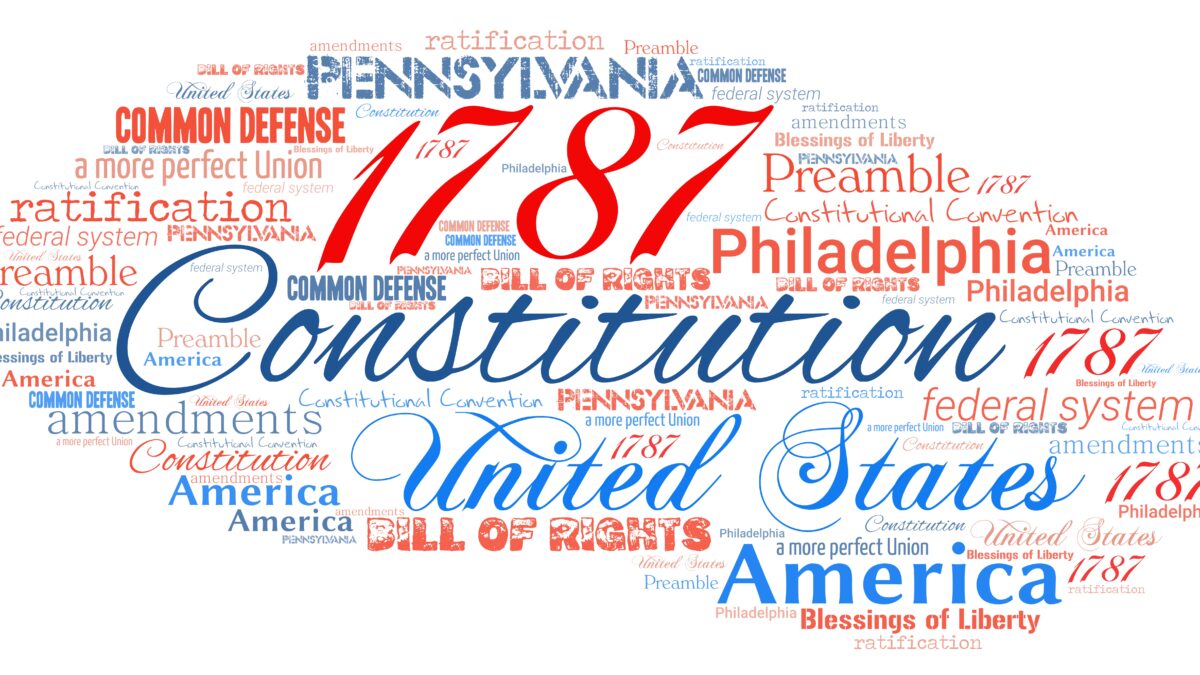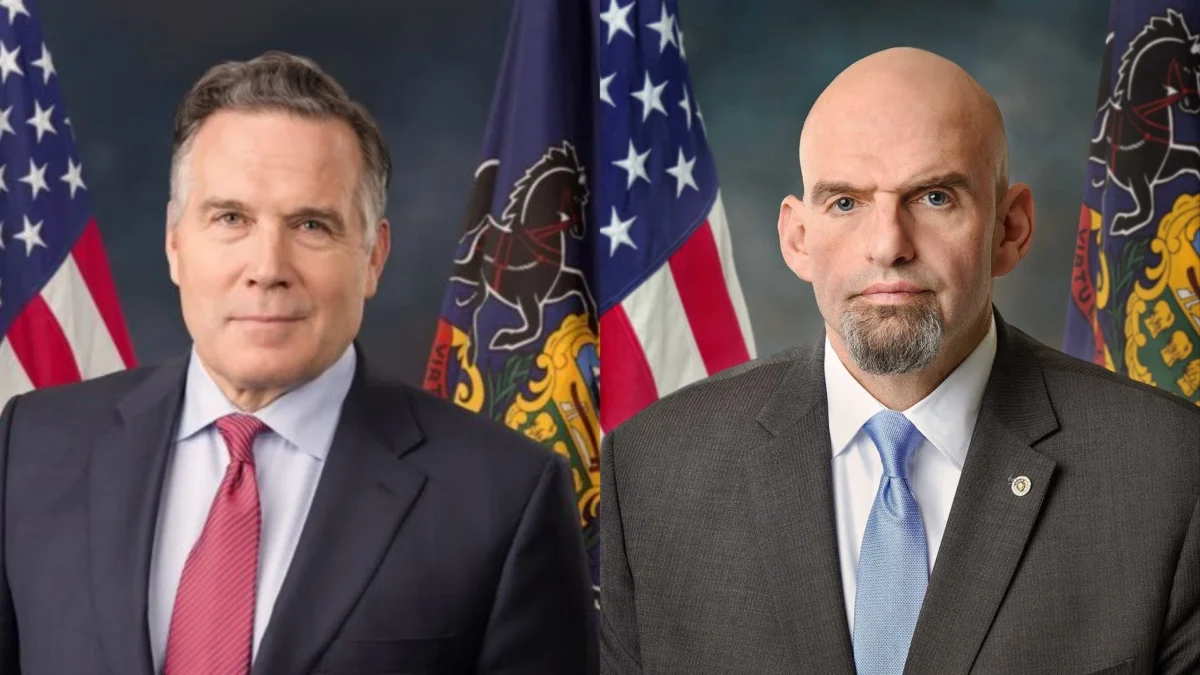Guy Ciarrocchi: We’re all tired of losing to “friggin’ Ohio”
During his recent budget address, Governor Shapiro got a lot of attention by saying that he’s tired of Pennsylvania losing to “friggin’ Ohio.”
I agree. I applaud his can-do rhetoric. However, it’s not just Ohio: depending on which economic yardstick is used, Pennsylvania is rated as an “F” (Business News Weekly), 40th (US News & World Report) or 43rd (WalletHub).
Working with the Republicans and Democrats in the legislature and by putting his words into action within his own administration, the Governor can do this by focusing on two things: common sense and small businesses, where most people go to work each day. Let’s cut the regulatory red-tape. Limit Harrisburg’s involvement in businesses and make those limited interactions smooth-running, quicker and more transparent.
It should not be difficult to get our economy into the top half of states — and, yes, we should be a top-ten state. Think of all our assets: more energy under our feet than Saudi Arabia. More universities per capita than all but a handful of states. Life science sectors in Pittsburgh, Philadelphia and the Lehigh Valley, world-renowned medical centers, headquarters or hubs for internationally known economic powerhouses like Comcast, Hershey, Google and Vanguard. A leading agriculture state. Plus, being the “Keystone State,” we are the link to the Midwest, South and New England by rail and trucks, with port access to Canada, Europe and South America.
Shapiro rightly recognizes the problem and is setting a challenge for Pennsylvania. There are major steps that he should take as Governor and by working with Republicans and Democrats in the legislature: getting out of RGGI; encouraging the exploration and use of natural gas, and expanding school choice to empower more parents, hold schools accountable and rescue more children from demonstrably failing schools.
But, sadly, those things are controversial — not on “Main Street,” but in Harrisburg. Nonetheless, we must demand those changes.
So, as a former Chamber CEO, I urge him — and the legislature — to focus short-term on important, necessary steps that should be easily doable. Let’s focus on common sense and small businesses.
The governor has removed the no longer necessary college degree requirement to work in certain state government positions or to enlist in the police academy. Good! But (thankfully) most of us do not work in government.
He unveiled his “PAyback” plan for applications to the state for various licenses and permits. If an applicant doesn’t get his/her license in X days, they get their money back. Good, but as I and others detailed before, what a business owner wants is the license, not an apology and a refund.
However, the governor is on the right track.
On behalf of small businesses, I urge him to double down on “PAyback” by embracing “deemed approved.” It’s simple, straightforward legislation and would save time and money for small businesses. Applications for state licenses and permits would have a timetable. If Harrisburg doesn’t approve or deny an application — and explain why, it would be “deemed approved.” No longer would applications languish for weeks, months or longer. It encourages tracking and transparency: approve it, or explain why not. It could be law by April 1.
Next, let’s call on Harrisburg to do something that they almost never do: be bold! Two suggestions.
First, there are over 2,400 licenses and permits requiring state agency(ies) approval. Rather than trying to tweak each one, adopt the 21st-century model with the goal of January 2025. Assume Pennsylvania had no licenses or permits, which ones would we create — for safety, necessary compliance and genuine consumer protection, and then establish them with deemed approved timelines. Start from zero and build up as needed, rather than starting at 2,400 and working down.
Second, there were dozens and dozens of regulations that were suspended during the Covid era. The goal was to lessen the burdens on small businesses, allowing for focus on keeping operations moving and valuing output over regulation. Many of those regulations were suspended for months, even years.
Pennsylvania should do what many other states have done: eliminate them. If we all “survived” two years of living without regulation “ABC-123” being in effect…maybe, just maybe, we don’t need it after all. Imagine eliminating dozens if not hundreds of regulations. It would save small businesses, lower costs, perhaps reduce the state government workforce. And send a great message to would-be entrepreneurs in Pennsylvania and across the nation.
Plus, in 2023, greater Philadelphia had an emergency the whole nation knows about: I-95 closure. Public safety and quality of life outweighed bureaucracy for immediate action. ‘Nuff said?
As a CEO of the Chester County Chamber — home to the largest and most vibrant county economy in Pennsylvania — the Covid era provided glaring examples of the tragic implications of government overreach and how intertwined Harrisburg was in the daily operations of too many businesses. The harms extended beyond Governor Wolf’s unduly restrictive, unilateral lockdowns and mandates.
The silliness of barbers and hairdressers cutting hair in someone’s home “illegally.” And government regulators clearly having almost no working understanding of what a supply chain was and how businesses were interconnected. And even less appreciation for the multiplier effect — when a business closes or leaves an office building; what happens to the coffee shop, Chinese restaurant, dry cleaner, and gas station that depend on those customers.
This past week we read news accounts of one Covid era nightmare that has come back from the dead. No business sector suffered more in 2020 and 2021 than restaurants, bars, diners and caterers. Their pain was felt by their suppliers — food and drink vendors — and those they work with such as dry cleaners, valet services, and musicians.
Facing the Solomon-like choice of going bankrupt or violating Wolf’s draconian lockdowns and mandates, some chose to open. Having already lost money, they tried to slow their bleeding of cash by maybe earning 30 to 60 percent of their revenue — and keeping some cooks, servers and suppliers from going broke or stir-crazy.
We now know the “beloved” PLCB — the Pennsylvania Liquor Control Board — is currently seeking to prosecute those who violated the mandates of 2020 and 2021. Governor Shapiro could ease the fears and anxieties of countless bars, restaurants and caterers by “directing” the PLCB to stop!Announce that all citations from that era are forgiven. This would help numerous businesses and thousands of workers at countless businesses — and show that he is focused on common sense and job creation, not bureaucracy. (And, yes, we ought to get rid of the PLCB.)
The governor has the right instinct. He needs to engage the super-majority in the legislature that agrees with him on reducing red-tape — and then direct his administration to follow his own lead.
Less Bureaucracy. Transparency. Customer-focus. Common sense.
Forget Ohio. With our assets, it could be: look out Florida!
Guy Ciarrocchi is a Senior Fellow with the Commonwealth Foundation. He writes for Broad + Liberty and RealClear Pennsylvania. Follow Guy @PaSuburbsGuy




